Đối với các trung tâm dữ liệu, sự ổn định của hệ thống điện đóng vai trò thiết yếu trong việc duy trì hoạt động liên tục và bảo vệ dữ liệu. Các sự cố về nguồn điện hoặc lỗi hệ thống pin dự phòng (UPS) có thể gây ra những gián đoạn nghiêm trọng, dẫn đến thiệt hại về thời gian và tài chính. Đó là lý do tại sao Hệ thống Quản lý Pin (Battery Management System - BMS) trở thành một giải pháp quan trọng, giúp các IT Manager và IT Infrastructure Manager giám sát, tối ưu hóa, và nâng cao tuổi thọ của pin, đảm bảo nguồn điện ổn định cho các trung tâm dữ liệu.
Vai trò của hệ thống BMS đối với các trung tâm dữ liệu
Trong một nghiên cứu từ Viện Ponemon về thiệt hại khi gián đoạn vận hành trung tâm dữ liệu, sự cố về hệ thống pin chiếm một phần không nhỏ trong những nguyên nhân gây downtime cho UPS và hệ thống điện nói chung. Các nguyên nhân phổ biến bao gồm: Mất cân bằng điện áp. Điều này có thể làm giảm tuổi thọ của pin, đặc biệt khi một trong các pin yếu hơn so với các pin còn lại, gây ảnh hưởng đến toàn bộ hệ thống. Pin lỗi hoặc hỏng hóc. Một pin, cell lỗi có thể ảnh hưởng đến toàn bộ dãy pin, gây sụt giảm năng suất và dẫn đến tình trạng downtime. Thiếu giám sát và bảo dưỡng định kỳ. Do các yếu tố này, các sự cố nghiêm trọng thường không được phát hiện kịp thời và có thể diễn ra nhanh chóng trong vòng 1-2 ngày. Với sự hỗ trợ của BMS, các IT Manager có thể giám sát từng thông số cụ thể của pin và phát hiện sớm các vấn đề tiềm ẩn, từ đó giảm thiểu tối đa các rủi ro.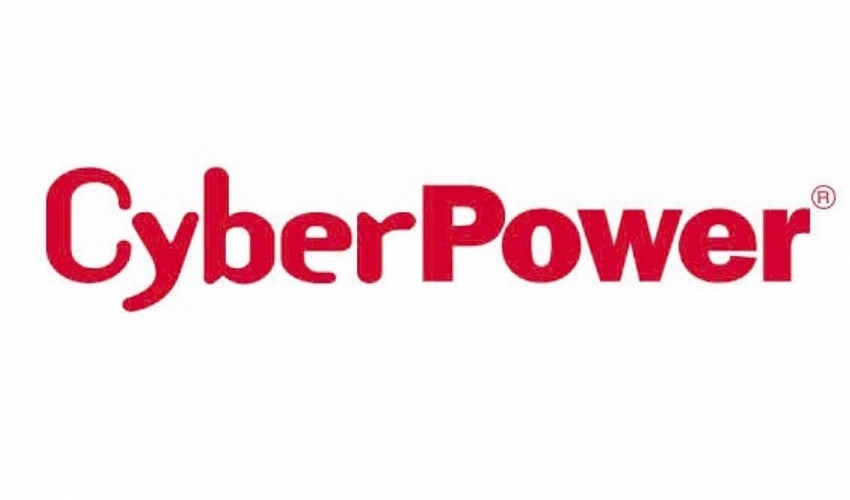 |
| CyberPower là một trong những công ty dẫn đầu trong lĩnh vực cung cấp giải pháp quản lý năng lượng và UPS, bao gồm cả hệ thống BMS. |
Hệ thống BMS của CyberPower – giải pháp toàn diện cho trung tâm dữ liệu
CyberPower là một trong những công ty dẫn đầu trong lĩnh vực cung cấp giải pháp quản lý năng lượng và UPS, bao gồm cả hệ thống BMS. Hệ thống này không chỉ cho phép giám sát tình trạng của pin một cách chi tiết mà còn hỗ trợ người quản lý trung tâm dữ liệu đưa ra các giải pháp bảo trì và thay thế pin kịp thời. Chức năng giám sát toàn diện BMS của CyberPower cung cấp cái nhìn tổng quan và chi tiết về trạng thái vận hành của từng pin trong hệ thống, bao gồm các thông số như: Điện áp từng pin: Theo dõi và phát hiện pin nào đang yếu, có khả năng bị lỗi, từ đó đưa ra cảnh báo sớm. Nhiệt độ và độ ẩm môi trường xung quanh: Các cảm biến được tích hợp để giám sát môi trường hoạt động, giúp giảm thiểu rủi ro do quá nhiệt hoặc độ ẩm cao. Nội trở trong (Internal Resistance): Chỉ số này cho biết tình trạng pin, giúp dự đoán tuổi thọ của chúng và lên kế hoạch thay thế hợp lý. Các thông số này được cập nhật liên tục và hiển thị trên giao diện web trực quan, giúp các IT Manager dễ dàng theo dõi từ xa hoặc thông qua các thiết bị di động. Chức năng cảnh báo chủ động Một trong những ưu điểm nổi bật của BMS là khả năng cảnh báo sớm. Hệ thống BMS của CyberPower có thể tự động đưa ra cảnh báo khi một cell pin có dấu hiệu không ổn định hoặc các chỉ số vượt ngưỡng an toàn. Cảnh báo có thể được gửi qua email hoặc tin nhắn SMS, giúp các IT Manager kịp thời can thiệp, tránh các tình huống xấu ảnh hưởng đến hệ thống trung tâm dữ liệu. Giảm thiểu thời gian Downtime và chi phí bảo trì BMS hỗ trợ quản lý bảo trì pin hiệu quả hơn, giúp giảm thiểu thời gian hệ thống bị gián đoạn và tối ưu hóa chi phí bảo trì. Thay vì phải bảo trì định kỳ cho toàn bộ hệ thống, BMS cho phép IT Manager xác định các cell pin cần bảo trì hoặc thay thế cụ thể, từ đó tối ưu hóa quy trình và giảm thiểu chi phí bảo trì định kỳ.Lợi ích khi ứng dụng BMS trong trung tâm dữ liệu
Một là tối ưu hóa tuổi thọ của pin: BMS của CyberPower giúp phát hiện và cân bằng các cell pin, làm giảm hiện tượng mất cân bằng điện áp giữa các cell pin, tăng tuổi thọ của cả dãy pin.Hai là, đảm bảo hoạt động liên tục: Với khả năng giám sát và cảnh báo chủ động, BMS giúp các IT Manager duy trì hệ thống pin ổn định và giảm thiểu nguy cơ downtime.
Ba là, cải thiện an toàn và hiệu quả năng lượng: Hệ thống BMS không chỉ giám sát tình trạng của pin mà còn tối ưu hóa khả năng sử dụng điện năng. Điều này đảm bảo rằng năng lượng được phân phối hiệu quả và không bị lãng phí.Cấu trúc và tính năng của hệ thống BMS CyberPower
Hệ thống BMS của CyberPower bao gồm các thành phần chính như Battery Manager và Battery Probe. Mỗi Battery Manager có thể kết nối và giám sát lên đến 4 dãy pin, với tổng số tối đa 480 pin. Cấu trúc hệ thống cho phép quản lý một lượng lớn pin trong cùng một hệ thống, giảm thiểu thời gian cần thiết để giám sát và bảo trì từng pin riêng lẻ. Giao diện web và ứng dụng di động. Cho phép IT Manager theo dõi và quản lý từ xa, đồng thời cung cấp cái nhìn toàn diện về trạng thái của từng cell pin và toàn bộ hệ thống. Tích hợp với UPS. BMS của CyberPower có khả năng tích hợp trực tiếp với các hệ thống UPS, tạo thành một hệ thống quản lý điện năng toàn diện và đồng bộ cho trung tâm dữ liệu. Cập nhật Firmware linh hoạt. Tính năng này cho phép hệ thống BMS nâng cấp để tương thích với các công nghệ mới, tối ưu hóa hiệu suất và nâng cao khả năng bảo vệ hệ thống.Ứng dụng thực tế
BMS của CyberPower đã được triển khai tại nhiều trung tâm dữ liệu lớn tại Việt Nam và trên toàn cầu, bao gồm các ngành ngân hàng, viễn thông và dịch vụ công. Một ví dụ điển hình là hệ thống BMS được triển khai tại Viettel, một trong những tập đoàn viễn thông hàng đầu tại Việt Nam. Qua đó, BMS đã giúp Viettel giảm thiểu các sự cố về pin và tối ưu hóa hiệu quả vận hành, đảm bảo dịch vụ không bị gián đoạn.Trong bối cảnh các trung tâm dữ liệu ngày càng trở nên quan trọng, vai trò của IT Manager và IT Infrastructure Manager ngày càng phức tạp hơn, đặc biệt khi phải đảm bảo tính ổn định và an toàn cho hệ thống năng lượng. BMS của CyberPower mang đến giải pháp giúp các nhà quản lý dễ dàng giám sát, cảnh báo và lên kế hoạch bảo trì pin một cách hiệu quả.
Hệ thống quản lý pin BMS của CyberPower không chỉ là một công cụ giám sát mà còn là một giải pháp toàn diện giúp nâng cao tuổi thọ pin, giảm thiểu chi phí và đảm bảo sự ổn định của các trung tâm dữ liệu. Đối với các IT Manager và IT Infrastructure Manager tại Việt Nam, BMS là giải pháp tốt để đối phó với các thách thức trong việc quản lý năng lượng, từ đó tạo điều kiện cho các trung tâm dữ liệu hoạt động hiệu quả và bền vững.








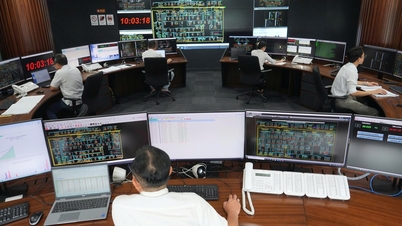





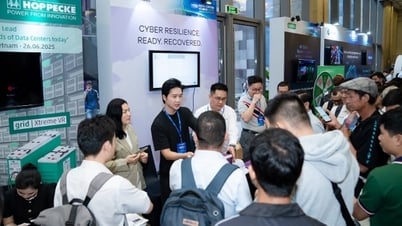

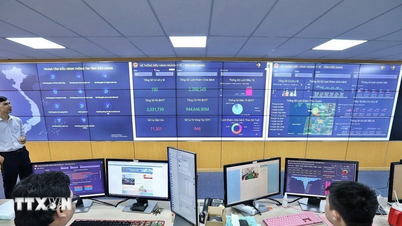

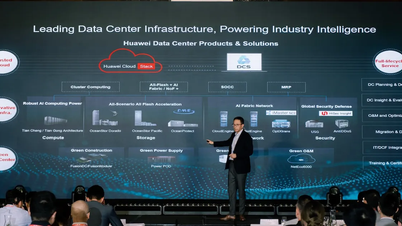




















































![[Infographic] Chương trình diễu binh, diễu hành chào mừng 80 năm Cách mạng Tháng Tám và Quốc khánh 2/9](https://vphoto.vietnam.vn/thumb/402x226/vietnam/resource/IMAGE/2025/7/12/3bf801e3380e4011b7b2c9d52b238297)


















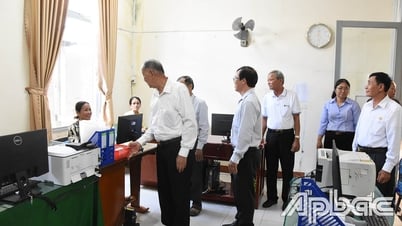


















Bình luận (0)